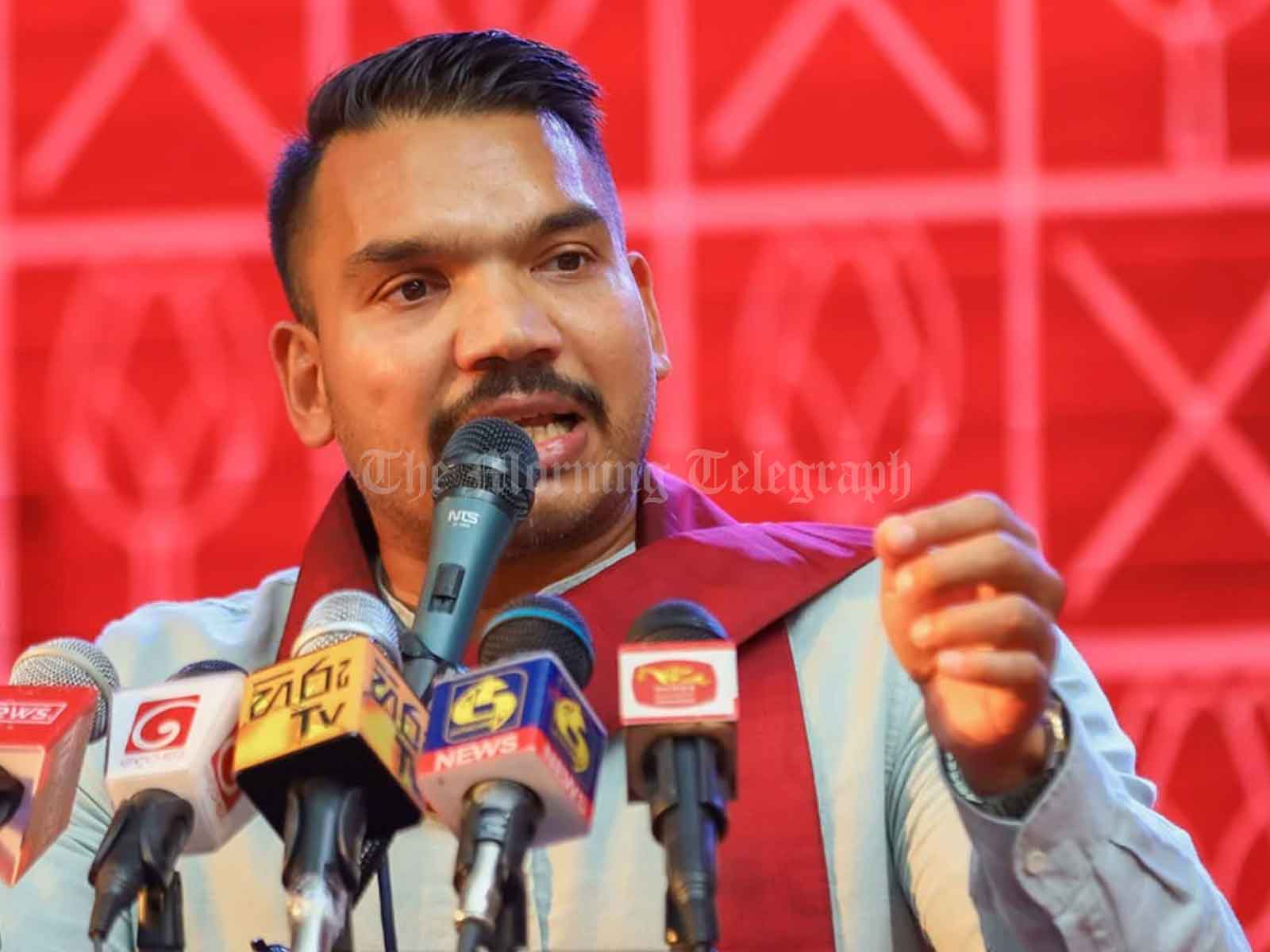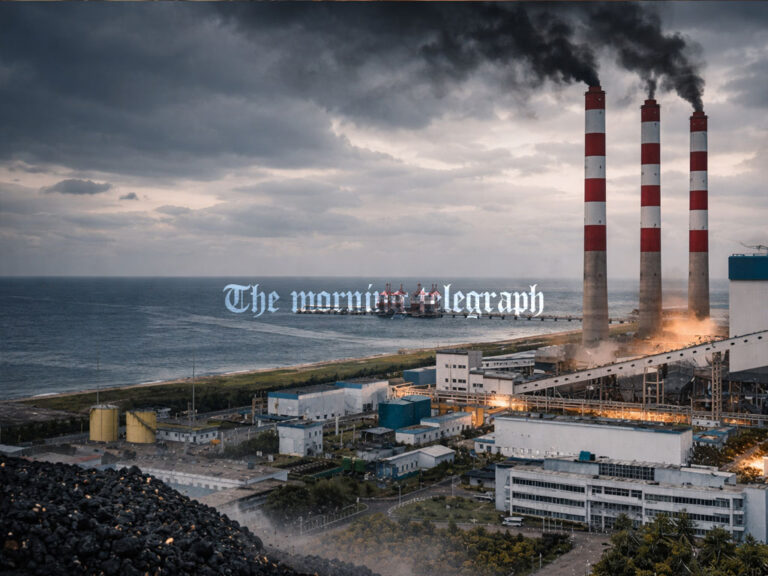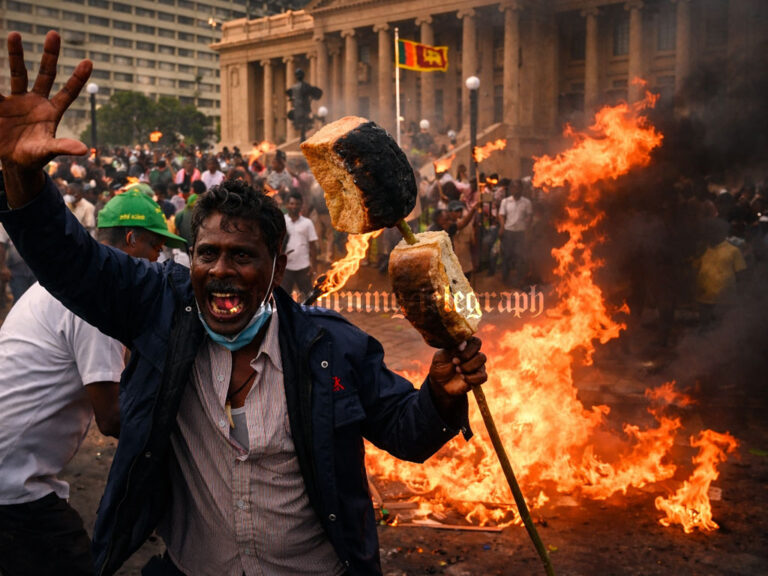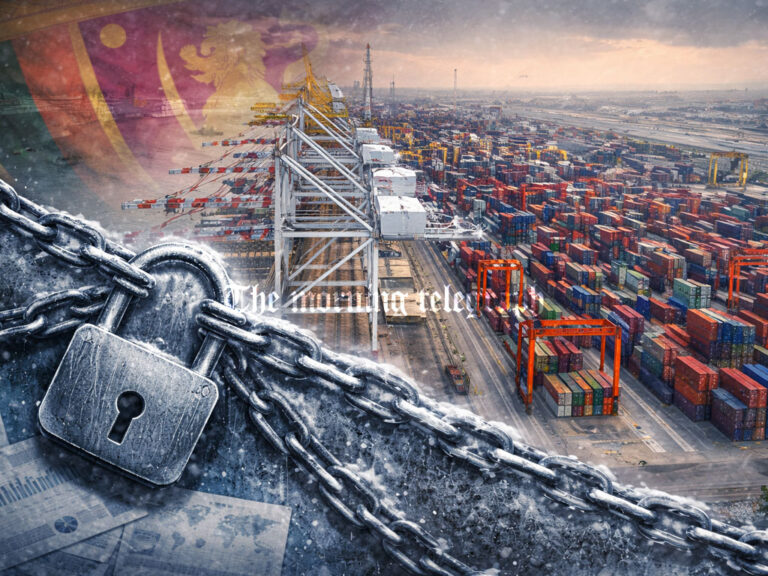
Ratnapura, September 2024 – In a defiant and energetic speech delivered at a rally in Ratnapura, Sri Lanka Podujana Peramuna (SLPP) presidential candidate Namal Rajapaksa strongly defended his family against longstanding allegations of corruption and stolen wealth. He issued a direct challenge to his political opponents, stating that he is willing to appear before any court in the world if proof of the Rajapaksas’ ill-gotten wealth is found. The rally, held in support of his presidential campaign, was chaired by his father, former President Mahinda Rajapaksa.
Addressing a crowd of supporters, Namal Rajapaksa criticized opposition leaders for continuously accusing the Rajapaksa family of corruption without providing evidence. He called on those making the allegations to present the “bundles of files” they claim to have on the family’s assets and to stop making baseless accusations. “I challenge you to bring the files and prove there is any ill-gotten wealth,” he declared. “If there is proof, I will face any court, anywhere in the world.”
Namal’s remarks come at a time when corruption charges and questions about the wealth of the Rajapaksa family have resurfaced as central issues in the presidential campaign. These accusations date back to previous governments, and the Rajapaksa family has consistently denied any wrongdoing.
Namal Rajapaksa used the opportunity to remind the crowd of the significant contributions his family has made to the development of Sri Lanka, particularly during the presidency of his father, Mahinda Rajapaksa. He highlighted that during Mahinda’s tenure, village economies were strengthened, rural infrastructure was developed, and farmers were given fair prices for crops like cinnamon, chillies, and tea. He credited his father’s administration with expanding the public service and creating thousands of jobs for the country’s youth.
“We were the ones who built the village economy,” Namal said, referring to Mahinda’s policies. He went on to criticize the subsequent government under the “Good Governance” administration, accusing them of undermining local agriculture by reducing the prices of essential crops. “When they came into power, they brought the price of cinnamon and tea to the ground to help the re-exporting businessmen,” Namal claimed. He also pointed out that his uncle Gotabaya Rajapaksa’s government worked to rectify these issues and restore fair prices for these products.
Vision for Ratnapura and Sri Lanka
Namal’s speech also laid out his vision for the future, particularly in the Ratnapura district, a region known for its gem industry. He promised to turn Sri Lanka into a global hub for gems, citing countries like Thailand and Dubai as examples. “If Thailand and Dubai can become centers for gems, why can’t Sri Lanka? We have the natural resources and skilled workers. What we need is the right policy direction, and I am ready to provide that,” he said. He emphasized his commitment to improving the lives of workers in the gem and mining industries, promising better safety measures and fair treatment.
Namal also laid out his plans for broader economic development, focusing on empowering rural businesses and investing in education. “If we strengthen village businesses, we strengthen the national economy,” he said. “And if we provide a good education for our children, we prepare them for the modern job market.” He noted that developing Sri Lanka’s information technology sector would be crucial to creating more jobs and improving the country’s competitiveness on the global stage.
He promised that an SLPP government under his leadership would ensure that investors, whether local or foreign, contribute directly to job creation and economic growth in Sri Lanka. “We are not concerned about where the investors come from, but what they will bring to the country—how many jobs they create for our youth,” Namal added.
Namal Rajapaksa took the opportunity to address critics, particularly those from the opposition, who have frequently accused the Rajapaksa family of mismanaging the economy and accumulating personal wealth at the country’s expense. He rejected these claims, reminding the crowd that even President Ranil Wickremesinghe had cleared the Rajapaksa family of any wrongdoing after conducting investigations. “Even Ranil said there is no stolen wealth,” he said, referring to recent statements made by the President in Parliament.
He accused opposition parties, especially the Janatha Vimukthi Peramuna (JVP) and its leader Anura Kumara Dissanayake, of using corruption accusations as a political tool without providing any evidence. “They say they are coming to power to catch thieves, but we’ve heard this story before. They promised it in 2015 and failed,” Namal said. He pointed out that these political tactics are not new, but rather recycled accusations that lack substance.
He also criticized the opposition for failing to deliver on their own promises. “They said they would give the people ten thousand rupees, and after two years, they couldn’t even deliver that,” Namal claimed, referring to the 2015 promises made by the opposition, who came into power only to find themselves financially constrained.
In his closing remarks, Namal Rajapaksa urged the people of Ratnapura and Sri Lanka to trust the SLPP’s vision and to vote for the party in the upcoming presidential election. He called the election a critical juncture for the country, saying it is not about electing the “best speaker” or “the loudest critic” but about choosing a leader who will work to secure the future of the country and its children.
He assured the crowd that his party’s manifesto is practical and based on achievable goals, rather than empty promises. “We haven’t promised the impossible. Everything we say can be done,” Namal stressed. He reaffirmed his commitment to protecting Sri Lanka’s unity and integrity, promising that the SLPP would build the country without dividing it.
Finally, he urged the people to reject fear-mongering and threats from opposition parties and place their trust in the SLPP’s ability to lead Sri Lanka toward a prosperous future. “We trust the people because they want to work. We are not here to frighten the people; we are here to build trust. Let’s win this election together on the 21st,” Namal concluded.




